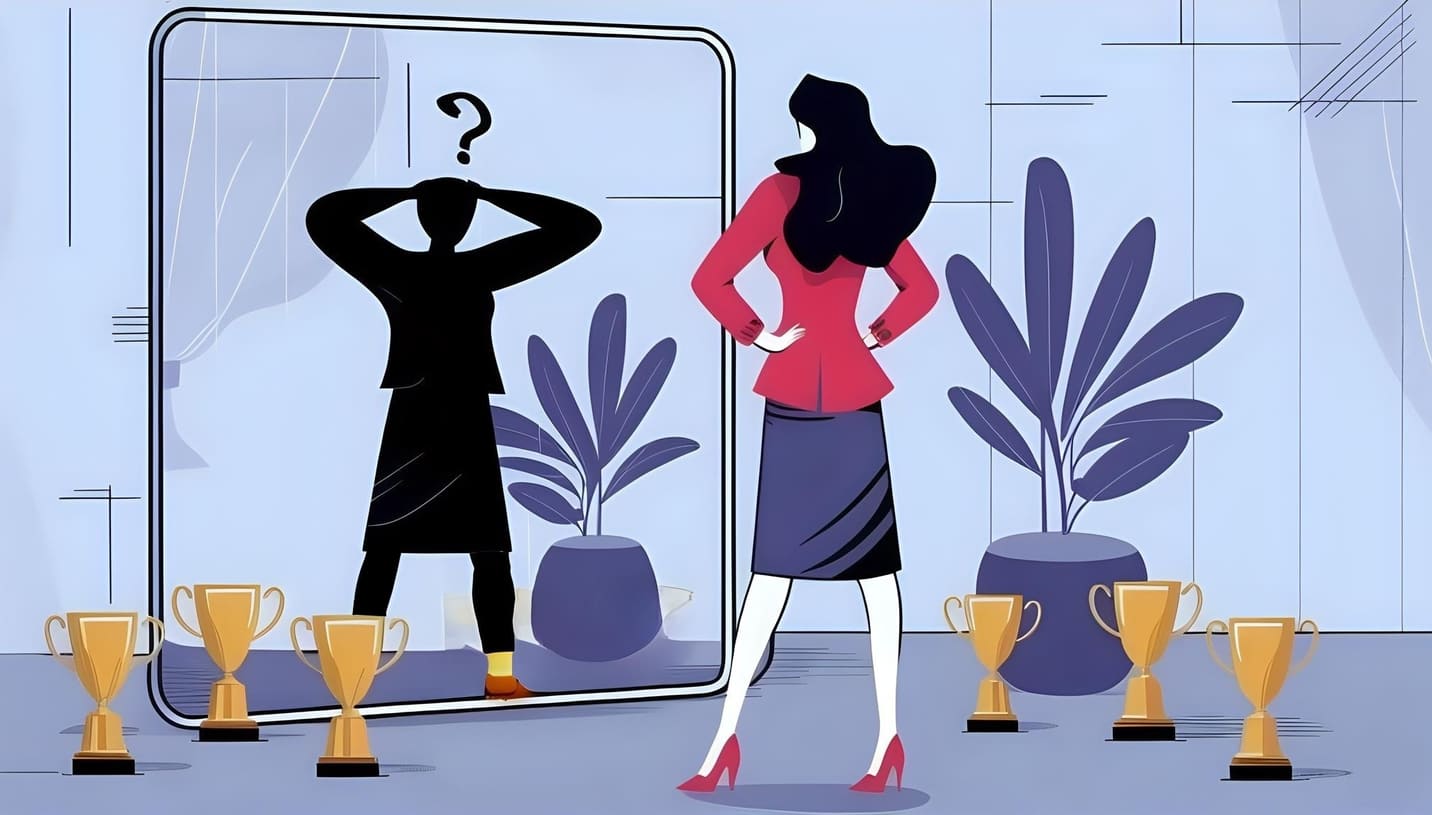Have you ever felt that you were not good enough or would not be able to rise to the occasion when faced with a new personal or professional challenge?
What is impostor syndrome
You may have experienced an episode of “imposter syndrome”: a limiting belief that leads you to view yourself as not good enough, even when the objective data tells another story.
I was recently talking about this with a good friend and founder of a successful consulting firm. She had just completed a major merger that bore witness to her good external reputation and had crowned an already impressive career. And yet, she confessed, in this new and exciting environment, she was afraid she would not be up to the task.
We must avoid vicious circles that make this negative dynamic chronic
Unfortunately, this feeling is widespread among the population. Sandi Mann investigates this in her book Why Do I Feel Like an Imposter? How to Understand and Cope with Imposter Syndrome. According to her research, 70% of people feel like a fraud at some point in their life, including award-winning actors such as Tom Hanks or Michelle Pfeiffer.
Considering ourselves at some point to be below our innate greatness and potential thus seems common and very human. It is our job, then, not to become discouraged, shrink away, or get caught up in vicious circles that make this negative dynamic chronic.
A gender-biased phenomenon
We have to ask ourselves whether our internal dialogue is healthy, objective, and coherent. If necessary, we should seek help from people who support us and help us gain clarity at times of uncertainty and on those bad days we all have.
Facing this syndrome collectively is also key to making progress on another fundamental front: greater societal equality. Worryingly, according to statistics, it still affects up to 18% more women. Michelle Obama and Angela Merkel are just two examples of successful women who have experienced it.
The interesting book Le Syndrome d’imposture, by Elisabeth Cadoche and Anne De Montarlot, delves deeper into the psychological reasons for this phenomenon.
We have to ask ourselves whether our internal dialogue is healthy, objective, and coherent
The key to the problem may still be certain historical educational biases that we should revisit. Boys were traditionally raised to embrace competition, be successful, and take risks. Girls, in contrast, were taught to be empathetic, careful, subtle, and discreet. A humility that is genuinely positive, but that can be detrimental when it prompts some women to sell their own knowledge and skills short, limiting their options to take on specific challenges.
Building self-confidence
Clearly, gaining healthy self-confidence is a key factor in a good life and should be a priority in education at any age, in families, and in the professional world. A “state of mind” that would allow us to enjoy life more, to shine brighter, and to be a better version of ourselves. These are exciting life goals for anyone, regardless of age, gender, beliefs, or social status.
The “self-confidence revolution” is yet another social challenge that we will have to address in the coming years. That’s what will enable us to navigate more successfully and fully in an increasingly complex and competitive world.
This article has also been published in Do Better by ESADE, March 6, 2024
David Reyero Trapiello – Senior HR Business Partner – Sanofi Iberia
e-mail: David.reyero@sanofi.com / Twitter: @davidreyero73 / Linkedin: linkedin.com/in/davidreyerotrapiello/

Leave a Reply